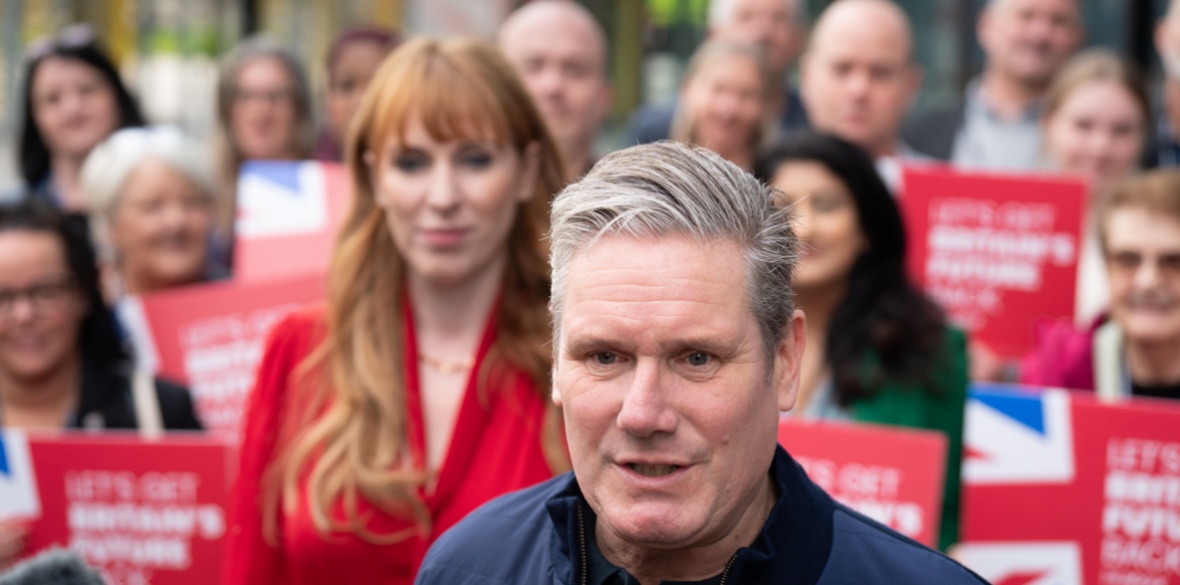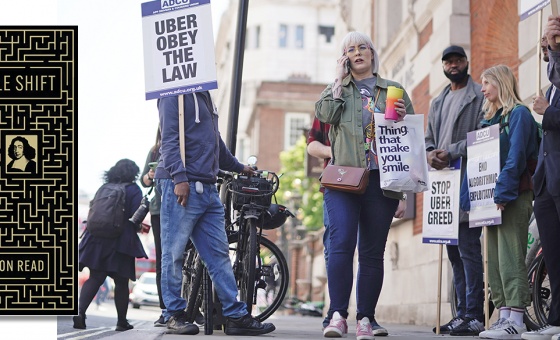This is the last article you can read this month
You can read more article this month
You can read more articles this month
Sorry your limit is up for this month
Reset on:
Please help support the Morning Star by subscribing here
THE first thing to say about the final document of the national policy forum (NPF), is that it is not the manifesto.
The document now goes forward to conference, where it can be amended. The manifesto will be drawn from the report as amended at conference.
The manifesto itself is agreed at the “clause five” meeting. That meeting involves the NEC, the shadow cabinet, the parliamentary committee of the Parliamentary Labour Party, the leaders of the Scottish and Welsh Labour Parties, and the chair and three vice-chairs of the NPF and eight trade union members of the Tulo contact group.
That last group, of course, ensures a significant trade union voice, but the dominant voice will be that of Labour leader, Keir Starmer.
It is 112 pages long and divided into six sections. I will try to focus on areas I think are of particular interest to the left. Of necessity, I will leave large swathes of it uncovered.
1. A green and digital future
This section has already received a good deal of attention. A Labour government would ramp up public capital investment into the green economy by £28 billion a year, but not immediately. The document commits Labour to start the spend by the second half of the parliament at the latest.
For those opposed to nuclear power, disappointment. Labour intends to ensure the long-term security of nuclear power by extending the lifetime of existing plants and backing new nuclear plants and small modular reactors.
The document, however, opposes fracking on the grounds that it costs far more than renewables as well as being unsafe; neither argument is considered relevant to nuclear energy.
And then there is the controversy over oil and gas. As we have seen with the decision to endorse the Rosebank field, Labour will not revoke licences that have been granted before it comes into office.
Further, the document commits Labour to partner with business and workers to manage existing fields for the entirety of their lifespan.
The NPF position on this does not go far enough for Unite’s leader Sharon Graham who is calling for nationalisation of oil and gas but arguing that there should be a continuation of North Sea extraction until workers can move into new green jobs.
There is indeed no commitment to nationalisation of energy (nor any other utility except rail) in the document, pledge number five Starmer’s pack of 10 lies he used to blag his way into the Labour Party leadership.
Instead, Labour will create “GB Energy.” This will be a publicly owned entity that will invest in cheap offshore wind, onshore wind, nuclear, solar, hydrogen, wave and tidal power.
It is in effect a mechanism for investment and promises to offer returns to the taxpayers. It will, however, be operationally independent with an independent board.
It is difficult to imagine that the board will not be drawn from the “captains of industry” whose interests will be closely bound to the demands of corporate capital.
While not explicit, the strategy implied in this section leans on the idea of the “entrepreneurial state” as well as a “partnership” approach industrial relation: “A Labour government will introduce an industrial strategy based on a genuine partnership with businesses, workers, unions and universities to deliver our growth mission.”
Notice “workers” and “unions” are not treated as synonymous. What that may mean for the unions is covered in the next section.
2. Better jobs and better work
It has to be said, that with some qualifications this section has to been seen as largely positive. The NPF commits Labour to repealing the Trade Union Act 2016, the Minimum Service Levels (Strikes) Bill and the Conduct of Employment Agencies and Employment Businesses (Amendment) Regulations 2022.
It makes no commitments on earlier Tory legislation, but this is a significant move in the right direction.
Further, Labour is committed to introducing an Employment Rights Bill, within 100 days of entering office. There is a clutch of benefits for trade unions: Labour will allow electronic balloting and workplace ballots; it will introduce rights for trade unions to access workplaces; it will move towards a single status of worker and transition towards a simpler two-part framework for employment status.
There has been a shift here. Initially the unions believed this was a commitment to create a single status so everyone is entitled to basic rights and protections like sick pay, holiday pay, parental leave and protection against unfair dismissal from day one on the job. “Moving towards” is clearly designed to create wiggle room.
There is a similar shift in language on the Labour’s Fair Pay Agreement. The documents says Labour “will consult widely on the design of a Fair Pay Agreement.”
The Fair Pay Agreement is to be negotiated through sectoral collective bargaining, initially in the care sector, to agree minimum standards on issues including pay and pensions, working time and holidays, training and work organisation.
The meaning of “design” here is critical, especially its relation to content. However, the introduction of a Fair Pay Agreement is to be welcomed as well as other aspects of the New Deal like ending fire and rehire, banning zero-hours contracts and making work more family friendly.
There is scepticism in some quarters about whether a Starmer government will implement this. Unlike his 10 pledges, this is a position arrived at through extensive discussions with the whole movement and it is difficult to believe he could dump it and survive.
Sections three to six will be covered in tomorrow’s Morning Star.











